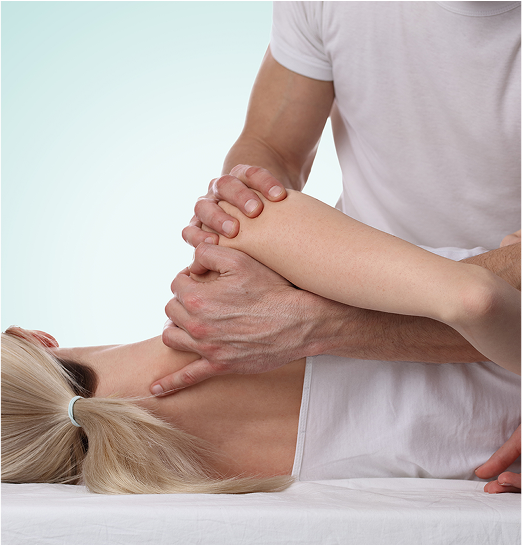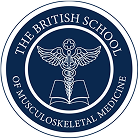Understanding Regulation Worldwide
Understanding regulation worldwide
The regulation of acupuncture, chiropractic, and osteopathy varies significantly across the globe.
Below, we provide an overview of the regulatory landscape to help you understand how BSOMM’s qualifications can be used in different regions, but students should do due diligence or contact the training team for more clarification if needed.

Countries where titles are not regulated
In many countries, acupuncture, chiropractic, and osteopathy are not formally regulated, meaning there are no specific legal restrictions on the use of professional titles or the practice of these techniques.
In these unregulated at least one of acupuncture, chiropractic or osteopathy is not nationally protected as a professional title countries, with the lack of unregulated or lightly regulated titles, so practitioners commonly use generic professional descriptors. Where a title is not protected, graduates may use descriptors that fit local norms. Because rules change, always check your local regulator before using any title.
Global audience, local rules. This diploma teaches manual therapy methods. It does not grant UK registration or the protected UK titles ‘Osteopath’ or ‘Chiropractor’. Titles/rights vary by country/state—check local rules
Examples of such countries include:

Argentina, Armenia, Bangladesh, Belize, Benin, Bhutan, Brazil, Cambodia, Canada (Provincially regulated; chiropractic regulated in all provinces), Chile, Colombia, Costa Rica, Dominican Republic, Ecuador, Egypt, El Salvador, Estonia, Ethiopia, Gabon, Gambia, Georgia, Guatemala, Guyana, Honduras, India, Indonesia, Israel, Jamaica, Jordan, Kenya, Kuwait, Lebanon, Liberia, Lithuania, Malaysia, Malawi, Mali, Mauritania, Mexico, Morocco, Mozambique, Namibia, Nepal, Nicaragua, Nigeria, Pakistan, Panama, Paraguay, Peru, Philippines, Poland, Qatar, Republic of the Congo, Romania, Russia, Singapore (TCM/acupuncture regulated; registration/practising certificate required), South Korea (acupuncture within licensed Korean Medicine Doctors’ scope), Sri Lanka, Suriname, Tanzania, Thailand, Tunisia, Uganda, United Arab Emirates, Uruguay, Venezuela, Vietnam, Zambia, and Zimbabwe, Afghanistan, Algeria, Bosnia and Herzegovina, Burkina Faso, China, Czech Republic, Djibouti, Guinea, Haiti, Kosovo, Kyrgyzstan, Lesotho, Madagascar, Moldova, Palestinian Territories, Slovakia, Togo, and Zanzibar (please check for any rule changes)
In these countries, BSOMM’s online courses provide a strong foundation for practice, and graduates are free to apply their training and skills to support their professional goals. However, we always recommend researching local customs, expectations, and any emerging regulations to ensure your practice aligns with community standards
Some countries have been marked as some regulation exists for at least one of the three fields (e.g., provincial licensing or protected titles). Always check your local regulator before using a professional title..
Countries where titles are regulated
In some countries, acupuncture, chiropractic, and osteopathy are regulated professions, meaning specific qualifications, licensing, or registration may be required to use protected titles such as “acupuncturist,” “chiropractor,” or “osteopath.” In these regions, BSOMM’s courses can still provide valuable knowledge and skills, but additional steps may be needed to meet local requirements.
Quick wording tip in regulated markets: use generic skill descriptors such as manual therapy, mobilisation, spinal manipulation methods and avoid wording that could imply a protected title unless registered/licensed.
Examples of regulated countries include:
– Australia, Canada (certain provinces), Malta, Switzerland, Finland, Iceland, France, New Zealand, Portugal, the United Kingdom, and the United States.
This is not an exhaustive list and students should check with their local government guidelines and information can change.
Key points for regulated countries:

1. United Kingdom:
– Acupuncture:
The title “acupuncturist” is not legally protected, but many practitioners join voluntary regulatory bodies such as the British Acupuncture Council (BAcC) for professional recognition.
Local licensing: Many councils require premises/practitioner registration for acupuncture (e.g., London Special Treatments licensing / local registrations). Check your local authority.
– Chiropractic:
Chiropractic is a regulated profession, and the title “chiropractor” is protected. Use generic descriptors (e.g., manual therapist trained in mobilisation & spinal manipulation methods). Do not use or imply the title ‘Chiropractor’ unless GCC-registered within the United Kingdom.
– Osteopathy:
The title “osteopath” is protected under the Osteopaths Act 1993. Only those registered with the General Osteopathic Council (GOsC) can use this title, BSOMM graduates should use generic descriptors (e.g., manual therapist trained in mobilisation & spinal manipulation methods). Do not use or imply the title ‘Osteopath’ unless GOsC-registered.
2. United States:
– Acupuncture:
Acupuncture is regulated at the state level, and a license is required to use the title “acupuncturist” or “doctor of acupuncture.” BSOMM graduates can use their training as a foundation for further study or practice under titles such as “acupuncture practitioner” or “manual therapist,” depending on state laws, State-licensed activity; use generic descriptors unless licensed and avoid wording that implies state licensure.
– Chiropractic:
Chiropractic is a regulated medical profession, and the titles “chiropractor” or “doctor of chiropractic” are legally protected. BSOMM graduates must refer to themselves as “chiropractic manual practitioners” unless licensed, use generic descriptors and avoid ‘Chiropractor/Doctor of Chiropractic’ unless licensed.
– Osteopathy:
Osteopathic physicians (DOs) are licensed to practice medicine and surgery. The title “osteopath” is not commonly used; instead, “osteopathic physician” is the standard designation.
3. Australia and New Zealand:
– Acupuncture, Chiropractic, and Osteopathy are regulated health professions, and specific qualifications are required for registration. BSOMM’s courses can complement your existing qualifications or serve as a stepping stone toward meeting local requirements.
4. Canada:
– Regulation varies by province. In provinces like British Columbia and Ontario, titles such as “acupuncturist,” “chiropractor,” and “osteopath” are protected, and licensing is required. BSOMM graduates can use their training in conjunction with other qualifications to meet provincial standards.
Countries with specific practice restrictions
In some countries, acupuncture, chiropractic, and osteopathy are partially regulated or subject to specific restrictions.
For example:
– Canada:
In provinces where these professions are regulated, additional licensing is required to use protected titles.
– United States:
State-specific licensing is required to practice as an acupuncturist, chiropractor, or osteopathic physician.
– European Union:
Regulation varies by country, with some nations requiring specific qualifications or registration.
In these regions, BSOMM’s courses can provide a strong foundation for further study or practice under permitted titles. We recommend researching local regulations to ensure compliance.

Working globally with BSOMM qualifications
BSOMM’s online courses are designed to be globally applicable, providing you with the knowledge and skills to practice acupuncture, chiropractic, and osteopathy in a variety of settings. However, the ability to use specific titles or practice professionally may depend on the regulatory status of these professions in your country. Here’s how you can make the most of your BSOMM qualification:
1. In Unregulated Countries:
The majority of countries are unregulated and you can use your training and title to practice, while adhering to local customs and ethical standards.
Where a title is not protected, graduates may use locally accepted descriptors. Always check your local regulator before using any professional title
2. In Regulated Countries:
Use your BSOMM qualification as a foundation for further study or practice under permitted titles. Research local requirements to determine if additional certifications or licensing are needed, describe skills generically (e.g., manual therapy; mobilisation; spinal manipulation methods) and avoid wording that implies a protected title unless registered/licensed.
3. Everywhere:
Stay informed about changes in local regulations, as the legal status of these professions can evolve over time.
Our support for Your professional journey
At BSOMM, we are committed to supporting your professional growth. While our online courses provide a globally respected foundation, we encourage you to:
– Research local regulations and professional standards in your country.
– Consider joining professional associations or regulatory bodies to enhance your credibility.
– Stay updated on emerging trends and changes in the global landscape of acupuncture, chiropractic, and osteopathy.
BSOMM’s online courses in acupuncture, chiropractic, and osteopathy offer a flexible, high-quality education that can be applied in many countries around the world. Whether you are practicing in an unregulated region or working toward meeting the requirements of a regulated jurisdiction, our courses provide the knowledge and skills you need to succeed. By understanding and adhering to local regulations, you can confidently use your BSOMM qualification to achieve your professional goals.
For more information on regulation in your country, feel free to reach out to our support team or consult local health authorities and professional associations.

